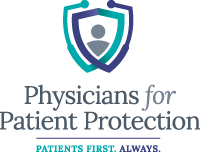atexpsych
New Member
- Joined
- Aug 10, 2019
- Messages
- 4
- Reaction score
- 5
- Points
- 781
- Attending Physician
Hello everyone,
I am hoping to tap into the collective to gain some information regarding working with mid-level providers. I am currently a solo practitioner with a relatively successful outpatient clinic that I have been building over the last 3 years. At this point it I find myself starting the contemplation stage of working with (contract) or hiring (salary) a mid-level provider (PA/APN) however I realize that I am completely in the dark with all of this. I know that my first step is to register with the state board as a delegating physician however after that I am not certain how to proceed. Does anyone know of any resources I might be able to look into for guidance. None of my fellow psychiatrists are working with mid-levels and so they aren't able to help. I am hoping that there are some people here who have experience with this. I haven't gone the job-posting route because I haven't really decided if I should work with someone on a 1099 basis or as an actual salaried employee; also I'm not certain if I would bring them on board in to my clinic or work with them as they operate their own. Again, any guidance of any kind would be greatly appreciated. I hope others might read this as well and find some helpful information.
I am hoping to tap into the collective to gain some information regarding working with mid-level providers. I am currently a solo practitioner with a relatively successful outpatient clinic that I have been building over the last 3 years. At this point it I find myself starting the contemplation stage of working with (contract) or hiring (salary) a mid-level provider (PA/APN) however I realize that I am completely in the dark with all of this. I know that my first step is to register with the state board as a delegating physician however after that I am not certain how to proceed. Does anyone know of any resources I might be able to look into for guidance. None of my fellow psychiatrists are working with mid-levels and so they aren't able to help. I am hoping that there are some people here who have experience with this. I haven't gone the job-posting route because I haven't really decided if I should work with someone on a 1099 basis or as an actual salaried employee; also I'm not certain if I would bring them on board in to my clinic or work with them as they operate their own. Again, any guidance of any kind would be greatly appreciated. I hope others might read this as well and find some helpful information.


